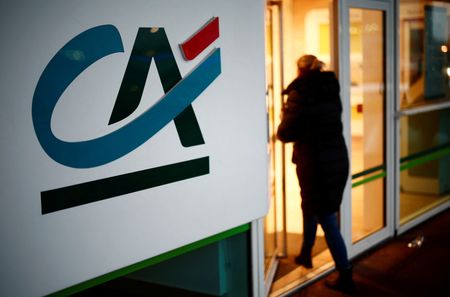By Maria Martinez
BERLIN (Reuters) -The German upper house of parliament approved on Friday a first tax relief package worth 46 billion euros ($54 billion) from 2025 to 2029 to support companies and revive the country’s sluggish economy.
The package, which had already been approved by the lower house, includes measures such as favourable depreciation options of as much as 30% per year for three years to ease companies’ tax burden. To encourage electric car purchases, buyers will be able to depreciate 75% of the purchase price in the year in which the vehicle is bought.
It is the first in a series of expected measures from Germany’s new government to boost the economy, which could be facing a third consecutive year of contraction for the first time in its post-war history.
“With this, we are creating strong investment incentives, securing jobs and putting Germany back on a growth path,” German Finance Minister Lars Klingbeil said on Friday.
“We are making Germany as a business location more internationally competitive.”
The package also includes a promised one percentage point cut to the corporate tax rate each year over five years from 2028, bringing it down to 10% by 2032.
Economic output will be 29 billion euros higher by 2029 than without the measures passed today, according to the calculation of the Cologne Institute for Economic Research IW, with real gross domestic product increasing by an average of 0.15% per year.
Investments are expected to be 16 billion euros higher by 2029, IW said in its report, adding that up to 39,000 new jobs could be created.
The measures will cut government tax revenue and the federal government had to make concessions to the states to secure their approval in the upper house of parliament.
“If we generate new growth, state revenues will also increase again,” Klingbeil said. “Until then, we are relieving the burden on municipalities and enabling the federal states to invest an additional 8 billion euros in good daycare centres, education and modern hospitals.” ($1 = 0.8561 euros)
(Reporting by Maria Martinez, additional reporting by Christian Kraemer and Rene Wagner, editing by Miranda Murray and Alex Richardson)










